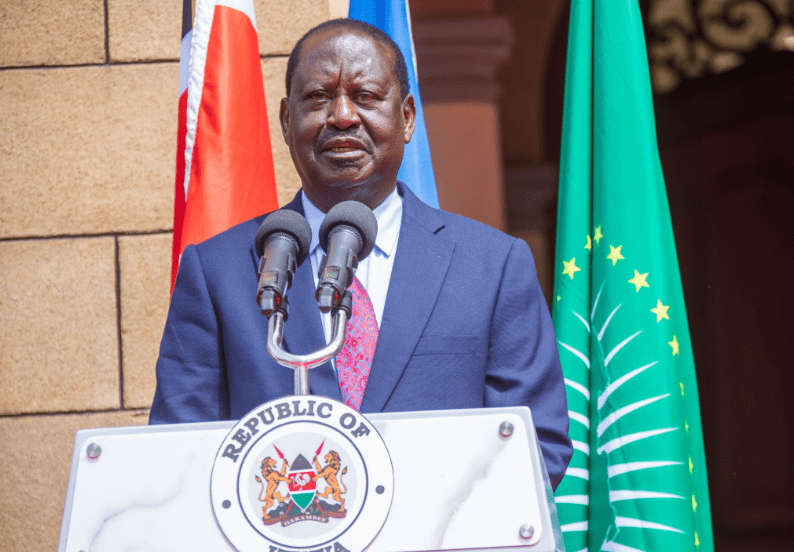Raila’s political game is a double-edged knife
By Alberto.Leny, July 30, 2024The more things change, the more they remain the same. That 1849 quote from French writer Jean-Baptiste Alphonse Karr perfectly sums up Kenya’s current intriguing political scenario.
One year ago, no one would have believed, let alone imagined, that staunch Opposition members would be nominated to key Cabinet positions in a hawkish government with a crumbling populist drift.
Yet that is exactly what happened last week when allies of perennial political chessboard player Raila Odinga were coopted into his arch-rival President William Ruto’s top decision-making organ.
Ruto’s deputy Rigathi Gachagua had boldly declared repeatedly that there would be no “nusu mkate” (half a loaf of bread) for the Opposition in a government he claimed belonged to shareholders, from the Mt Kenya and Rift Valley regions.
He was referring to the 2008 coalition government in which President Mwai Kibaki shared power and Cabinet positions with Prime Minister Raila Odinga, leading to the most peaceful political and successful economic period in Kenya.
He also alluded to the significant, though less impactful, 2018 “handshake” between Ruto’s predecessor, Uhuru Kenyatta, and the doyen of opposition politics he supported in a controversial bid against his thendeputy in the 2022 election.
That was the beginning of the folly of making careless statements that have come back to haunt him in Kenya’s multiethnic and politically diverse society.
Going by last week’s tumultuous events, things have not changed much in the complex Kenyan political ecosystem. They remain the same as they have remained since Daniel arap Moi’s era. The Opposition is in the government and the government is in the Opposition.
The DP’s facial expression failed to hide the bewildering emotions, standing solemnly as Ruto announced the names of the allies of the man he had derided on so many occasions to his Cabinet and “broad-based” government.
While Raila may not have received a “half-loaf” of the kind baked in 2008, he has certainly “bought shares” in Ruto’s government. Critically, his allies were nominated to plum Cabinet positions that could economically impact the regions of his traditional support base.
At the personal level, he has secured vital mileage enhancing his bid for the coveted chairperson of the African Union Commission after submitting his nomination papers last weekend with full government endorsement.
Raila, the “kingmaker” and expert in the political game of musical chairs he has balanced several times, with his unsuccessful presidential bids, has, however, opened a Pandora’s box with his latest move.
This time around he has alienated his longtime Azimio la Umoja colleagues and close confidantes, who were appalled by a sense of betrayal in “saving” a beleaguered Ruto pushed to the wall by the hugely popular Gen Z mass protests.
The audacity of Raila’s reasons for his rapprochement with Ruto and claims he has exacted a price and a prize from the regime has not convinced the Opposition, his supporters and the defiant Gen Z.
It is a double-edged knife. On the one hand, it could be the Trojan Horse the Opposition needs to cut down the stubborn Kenya Kwanza government to size.
On the other, it could cut back sharply if it does not gain a chunk of popular demands on the high cost of living, good governance, corruption, justice, and compensation for victims of the protests.
Justice remains the main national issue, only guaranteed if a truly impartial and independent individual is appointed to the vacant post of Attorney-General.
— The writer comments on national affairs-
More Articles

